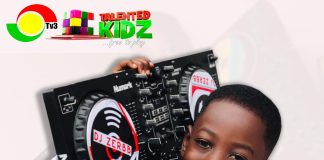Waala Naming of new born babies is one of the oldest and sensitive cultural practices of the people.
Once a child is born, a name is selected and given by the Head of the house. Couples may also consult religious leaders before conferring a name onto their new born. In times of uncertainties such as war, travelling, ill-health, disasters, etc where the lives of the couples may be in danger, a name was chosen before the child was born. It is also religiously advisable to choose a name before a child is born. One can also take a name at some stage in life after performing the necessary customary rites. For example, a hunter, farmer, warrior, chief, etc may take a name after attaining some status in life. A child’s name may also be influenced by the period, circumstance of birth, aspirations and dreams of the parents or family.
A waala name is their identity. Every name carries special meaning and once such name is called, it reminds the people (and the bearer) of the message behind it. These names are mostly proverbial statements depicting their identity, bravery, awareness of God, Death, Jealousy, barrenness, prayers, aspirations, among other circumstances surrounding the family (immediate/extended) and the waala state. For example, Abatanie/Abata(Abatanie uŋ fari bara- You bluff because it never happen to you), Botigi (Aŋ daaŋ Bɔtigi, a Jinpɛɛha?- Humans are never satisfied with what they have), Dakpan/Kpankpili (Dakpankpili kuŋ woŋ saa- An old log never gets fully drenched by rain), Kunjokuun (Daubie Kuŋjɔkuuŋ – A brave son never fear death), Datige/Lankor (Datige Lankor kuŋ laŋ nyaga – Trees may be thick in 100s but never will they have same root) etc are but few of the names.
To remember some dead relatives, their names are passed onto the new borns. Such a name is referred to as “Yo sigraa”. These names are often passed down as a result of the love and respect for those deceased relatives. It is also believed that some of our deceased/ancestors come back to earth after death. When they do, signs (closed eyes/mouth/palm, nonstop crying, etc) will show, some rituals/prayers are expected to be performed and the deceased/ancestor’s name re-given to the new-born. For example, your great grandfather by name Mwinibinbu who died over 50 years ago may come back into the family (in the form of a new baby). When that happened, signs will show, rituals will be performed and Mwinibinbu re-given to the new-born. This applied to all immediate dead persons of the family who were of good standing before death.
Names of animals are also given to human beings (rarely) to symbolise the speciality of those animals in the Waala setting. Descendants of great warriors, hunters, farmers are given such names. Some of these names include: Gbegni(Lion), Wɔɔ(elephant), Kuri(Tortoise), Waahu(Snake), Mwaanjie (Red Monkey), Kolinkoo, etc. Will talk later on this subject.
The advents of Islam, Christianity, and Western education have also given way for the modernisation of names of new borns in Wa. Most of the ‘new’ Waala names are influenced by the Islam/Arabic names given to our wards. The Arabic names are translated into waali and given to the child. For Example, the names Rahama(Arabic) and Hena(waali) have the same meaning (ie favour) and can be given to one person(female). Abdul Subuur(Arabic) can be translated into waali as Kan-nyiri, and the child can bear even both names. It is now not surprising to find most of our Waala folks without their traditional names. They either bear only their Islamic/Arabic names or have a translated waali versions added to their Islamic names. This applies to the Christian names too.
Nevertheless, the indigenous Waala names are special and still very relevant to the people of the Kingdom. Here are a collection of some of these names and their meaning you would want to consider for your next child.
1. Abeenkyene/Tuurosung (Abɛɛnkyɛne ka a suuhi tuuro – Evil never succeed over good)
2. Abatanie (Abatanie uŋ fari bara – You bluff because it never happens to you)
3. Adaare (Adaarin na ta, ka ba baŋ daba – You will know men on the D Day)
4. Anbakpiire (Aŋ ba kpiire? – Who will not die?)
5. Anbanbeu/Banbeu (Aŋ muoŋ banbeu?- Who knows tomorrow?)
6. Botigi (Aŋ daang Bɔtigi, a Jenpeeha? – Man is never satisfied with what he has)
7. Baalasaana/Saana/Biekpenaa (Baala saana Biɛkpɛnaa – A weak stranger finds solace at the chief Palace)
8. Baalayeu (Baala yɛu suŋ mwira): A weakling only helps in beating his/her sibling.
9. Badeu/Ayeba (Badeu yɛla, ayɛba): When it is about their house matter, they wonder.
10. Baliyau (Baliyau kuŋ bali mwama): One cannot pass by the boundaries of a farm without stepping on the gourd trees (creeping plants).
11. Bampuori/Bampuo (Bampuori Kun Bampuo): Know what is outside but not what is inside the stomach.
12. Dongmini/Domwini (Aŋ doŋmini baŋ yieme?): Who has climb up to God to know who is a slave?
13. Belinbaa/Katung (Belinbaa katuŋ): Trying to deceive a dog is hard
14. Berikubo/Kubo (Naŋ bɛri e tobo kubo) : Pay all ears to them.
15. Bilguo (Dondoma bilguo leu suha): The Enemy will beg you after failing to destroy you.
16. Biripuori (Dondɔma, Biripuori saaŋ yɛla):The Enemy will try to destroy you in your absence.
17. Bonkori (Boŋ maŋ kori a la veɛla? ): Nothing is beautiful when it becomes old.
18. Borri (Borri maana ninsaala): What you wear defines you.
19. Bugla (Dakuɔre baga bugulaara): A bachelor smiles after a soothsayer prophesy (especially when the gods promise him a wife)
20. Buon-nyira (Mwinikuubu buon nyira): Which of God’s favour is cheap to come by?
21. Bumbuura/Banbinbu (Bumbuura Banbinbu): Good preservation protects good seeds.
22. Buombeo (Buombeo la sagebeo): A bad call invites bad response.
23. Dabaga (Dabaga soŋsɔli, baŋ yɛŋ kyɛ boli): A garden lizard is too careless.
24. Dajuo (Dajuvuuraa kuŋ koŋ vaala/ Amaŋ vuuro Dajuo, uŋ vuuro vaala): When a situation(problem) is inviting another.
25. Dakore/Kunjaa/Gyaabie (Dakoɔre jɔra kuŋ gyaabie): A bachelor runs with no worries of carrying a child.
26. Dakpan/Kpankpili (Dakpankpili kuŋ woŋ saa): An old log never gets fully drenched by rain.
27. Dangaabu (Dangaabu tuoŋ yeli): Go early to be able to report.
28. Danyagre/Saangkuong (Danyagibeu Saaŋkuoŋ): A bad root of the tree poison the water.
29. Datige/Lankor (Datige Lankor kuŋ laŋ nyaga – Trees may be thick in 100s but will never have same root).
30. Dieng-baala/Kopea (Dieŋbaala na kɔpeɛ): A weak man only clean around his in-law’s house.
31. Doma/Badaguye (Doma yela, ba da guye): People are happy to welcome news(bad) concerning their enemies.
32. Sunkpana (Fuɔliyogu Sunkpana or Sɛusori Sunkpana):
33. Hambagnii (Hambagnii muni kuɔŋ yilen yilen): The water under ‘Hambagnii’, is very clean. Its an idiom in waali which means that “no matter how beautiful your sister is, you will not marry her”. In context, certain things are meant for others, not you.
34. Jingsung (Jiŋsuŋ la gbieŋ): Financial stability brings Peace. When you have more resources, peace of mind comes in.
35. Joraa (A joraa kyɛ aŋ waana): Fear something but it will still happen.
36. Jongari (Kataa yohu, Jongari): a Cobra will ride across a horse.
37. Jiga (To kparoo na bɛliŋ jiga): Wearing someone else cloths will only deceive your back, you will soon return it.
38. Bamfoubu (Ka e deu ba yuno, baŋ fɔɔbu la): If your roof isn’t leaking, it is because of your skilful patching. Every house has problems; it is about how you manage yours.
39. Wonbeo/Yelbeo (Ka nɔbeoŋ yelbeo, tobeoŋ maŋ wommaa): When you speak with bad intentions, a befitting response will be given
40. Kaabata (Ka abata kaŋa, baŋ ka ba bamaaŋ):
41. Kaapuori (Kaapuori yelkpieŋu): Look back and speak with strength.
42. Kandanbanbu (Kandanbanbu, ka a saŋa pariyɛ): Had I known, always at last.
43. Kanbuaraa: If I like it
44. Kanbanbe: If I know there
45. Kandoma/Saa (Kandoma so saa, aŋ maana o yoŋ): If my enemy owns rain, he would be prospering alone. Enemies are not God to decide what will happen in your life.
46. Kpeglaa (Kpegla suŋ daaŋaa):
47. Saandunee (Kpiing-bogu na Saandunee): The death’s grave will destroy the world.
48. Kantubayi (Sɔbɔɔ, Kantubayi, baŋ na nyi ma): They(witches) can get me if i follow them out.
49. Kayari/Danbiibu (Kayari na danbiibu):
50. Kunjokuun (Daubie Kuŋjokuuŋ): A brave son will not fear death.
51. Konnuori (Kɔng nuori laari jeni): A hungry mouth takes in anything.
52. Konkoree longa (Kɔŋkoree lɔŋa, ka saa nuŋ yɛ o tala ko/wa):
53. Kɔnkyiinbu (Kɔŋ kyiinbu).
54. Puola (Kɔkɔdapuola kuŋlaŋ nyaga):
55. Saandiibu (Kuɔribaala na saaŋdiibu):
56. Langtuo (Langtuo kuŋ laŋ Jieŋaa):
57. Lanjimbu (Lanjimbu kun laŋ tiaha): Gathered people may have different minds/thoughts.
58. Lankuori (Lankuori kuŋlaŋ diibu): Same table, different agenda.
59. Libiri (Libiri veɛla kyɛ kɔŋ daalii): Money is sweet but has no stem.
60. Mani (Mani gaŋbu daari baŋ nyuuruu): It’s the day the ocean overflows, that people drink it water.
61. Gaanaang (Mwini binbu Gaanaaŋ): God’s judgement surpasses any mortal chief.
62. Mwindingu/Nunbila (Mwindiŋu, nunbila, ebila): God’s way, He does what he want.
63. Maali/Namaali (Namaali nie Maali e minga): You do somebody, you do yourself.
64. Mwini/Binbu/Mwinibinbu (Naaŋmine binbu kuŋ baŋ wiri) What God has put together, nobody can put asunder,
65. Duoho/Duoso (Duohisuŋ na pelpuo): A good news gladdens the heart.
66. Mugibu (Saa tɔ duɔ, na maalI mugibu):
67. Mwennie/ŋmennie/Maalisung (Naaŋmini nie maalisuŋ ): Good Samaritan does God’s work.
68. Mwinibalonno (Mwini yeng ba lonno): God is not in a hurry.
69. Najieri (Najieri kun dugi salma): No matter your status (even a chief), his soup won’t be prepared with Gold.
70. Tiferee (Niŋbaala yɛla tifɛrɛɛ): matters of the poor are always a burden to himself.
71. Nundien (Kuɔraa Nuŋ deŋ kuŋ deeŋ seu): One (farmer) who love to play, won’t do it during rainy season.
72. Nyinbogu/Saang-oori (Nyinbogu Saaŋ-oori): A hole in teeth cannot guarantee good chewing. When your teeth are bad, chewing becomes difficult.
73. Sendeu (Pogibeu Sendeu): A bad wife commits adultery with her husband family members. A bad wife is capable of destroying her marital home.
74. Buriyela (Pusaanee buriyɛla ):
75. Kuurii ( Sɔrekuurii kuŋ jɔ naa): A stone by the roadside, does not recognise who a chief is.
76. Saanguo (Saanguo saaŋ ba miŋa)
77. Saantiin (Saantiiŋ kun saan kubiri)
78. Sanga/Sangataabu (Saŋa taabu kong tiieŋ): When your time is up, no medicine can cure you.
79. Saanpie (Sa yoɔre na saaŋpie): A protracted/terrestrial rain may destroy the roof
80. Seseu (Sesɛuŋ naŋ daara, saa naane): It is not windy, not rainy yet.
81. Siibu (Nyogesuŋ la tuoŋ siibu):
82. Sori/Kpana (Sɛu sori, suŋ kpana):
83. Sobuun (Sɔbuun) Witch fire
84. Suo (Sie suo, gre-ŋmaara): A knife around the waist can easily cut the waist.
85. Tanbuhe (Tanbuhe kun furi vuori): An improperly mixed sand cant close an opening(of a muddy house).
86. Tangdagre/Suuri (Tandagree kun jaa suuri): We don’t pick mould sand in anger.
87. Tobie/Buondau (Tobie buondau): To called somebody’s child a stick.
88. Tonintaa (Bikpiiba yɛla tɔniŋtaa): When it comes to the orphan issues (problems), they pay lip service.
89. Toma (Tɔma deu kun e kaari): Don’t be boastful in your colleague mother’s house.
90. Topuo /Konbambo (Tɔpuo kɔn bambo):
91. Topie/Saatopie (Saaŋ tɔ pie, pie miŋ baga): The rain does nothing to the rock.
92. Pelpuo (Yɛlsuŋ/Duohisuŋ na pelpuo): Good deeds bring happiness
93. Yienbogu (Yienbogu na dansie): A night pothole, dislocates waist.
94. Maannaa (Yɛribu maali Naa/ Yɛribuŋ maana Naa):
95. Jengbeo (Jengbeu kuŋ buŋ Naa): A poorly roofed palace, cannot host a Chief.
96. Bongaamwini/Angaamwini (Boŋgaaŋmini/Angaamwini):
97. Gyumihi la nyiibu(Gyumihi)
98. Saantuma (Saantuma kpɛ nagihibu):
99. Gyesuuri/ Jesuuri (Gyɛsuuri maali le bɔna):
100. Gaŋeteɛ (Bun-egraa kun gaŋ Mwini, gaŋi teɛ): A flying animal (bird) cannot overpass God, can only rise above trees.
101.Daulee (Dau lee ka buɔ do): It is when a tree falls that a goat can climb it.
102. Saanye (Dunee Saanyɛ..): The world has gone bad.
103. Jinenuba/Jenedeme (Jinenuba, Suŋ neŋ niŋe):
104. Kankauhamuuhi (Kankauhamuuhi , kyɛ aŋ beɛra Dondoma ): Even when am cutting grasses, it will still pain my enemy.
105. Nabagri (Nabagri kun maali wɔɔ): Even in a King’s shrine, elephant isn’t used as sacrifice.
106. Mara (Maali dimii sɛmara):
107. Bapiyela (Ninbaala Bapiyela, tenmaaluu):
108. Kongjulingu (Kɔŋ juliŋu Kun liŋ wɔɔ): A deep water cannot drown an elephant
109. Kolibogu (Kolibɔgu kuŋ kari eu): A hole in a stream/river, cannot scare away a crocodile
110. Duadana (Kataa kuoŋ, duadana):
111. Saanbaninge (Saanbaniŋe fiilijoŋa): A Frowning face(s) on the blind will go unnoticed.
112. Konjulingu (Kongjuliŋu,Bibaala kuŋ sigi): When a water is deep, a weakling cannot dive
113. Gbangu/Pirise (Buŋ koree gbama/gbaŋu Pirisɛ/ Joŋpoi gbaŋu kuŋ faari nyeɛ):
114. Kyuunii (Kyuunii/kyuundau maalipogiba ): Shea nuts prosper women. Women gain a lot economically from shea nuts.
115. Mwan-gbuli (Mwangbuli kuŋ baŋ puo): One cannot know what is inside a closed calabash.
116. Karikpieriba (Yidaandabeu na kari kpieriba ): A bad landlord/leader only chases away his neighbours.
117. Tiihinaa (Dagau tiihi naa): A tendaana/Landlord supports the chief
118. Gbangu (Wɔɔ gbangu kuŋ kpɛ laa ): An Elephant skin can never a bowl.
Other names may have
direct meaning as in;
119. Bundaana (Rich man)
120. Nankpaana(Hunter)
121. Tendaana(Earth god)
122. Sungnuma (Good deeds is sweet)
123. Sungsuma (Good deeds is good)
124. Peelisung (Start well)
125. Naatasung (Good intention)
126. Junoo (Good luck)
127. Daukyebile (No small man)
TOPPIE SAATORPIE
HSE NO: BO-BO-107, BOLI
0549633819
THANK YOU for constantly reading our stories. Kindly like, comment and SHARE stories on all social media platforms for more entertaining updates!
TO GET YOUR EXCLUSIVE INFO PUBLISHED ONLINE?
Call or WhatsApp our Editor on +233208291107/0241437833/0546509004 for Your Massive promo. You can equally email your stories or articles to info@xpressghonline.com or fuzzygh2016@gmail.com and we’ll surely put them online at www.xpressghonline.com




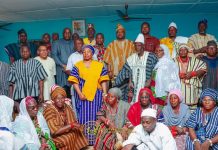
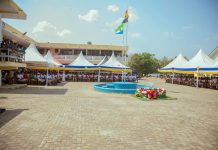
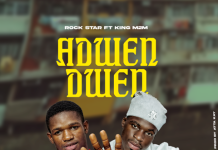
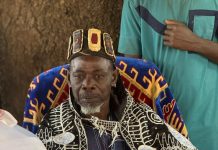
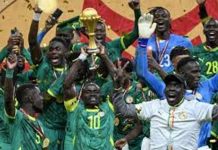



![Deenfly Ft Superboi Santana – Party Time [Prod By Asaynigi Recordz]](https://xpressghonline.com/wp-content/uploads/Deenfly-Ft-Superboi-Santana--100x70.jpg)
![Best Gally – Nubanie [Prod By Gallybeatz]](https://xpressghonline.com/wp-content/uploads/2019/05/gally1-100x70.jpg)
![Best Gally – Success [Prod By Gallybeatz]](https://xpressghonline.com/wp-content/uploads/2019/06/gally-s-100x70.jpg)
